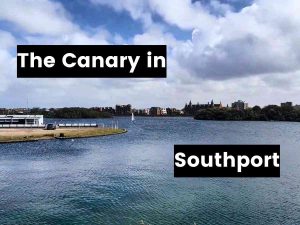Projected Labour Party cuts to the UK foreign aid budget will pose challenges to restoring the UK’s role as a responsible development partner. That’s the verdict of a leading NGO organisation, as the government department in charge of the budget releases its annual report.
Foreign aid budget: could it be cut under Labour this year?
On Monday 29 July, the Foreign Commonwealth & Development Office (FCDO) released its annual report and accounts for 2023–24.
The report contains the FCDO’s reported figures for UK aid spending for 2023-24. However, it does not contain forward-looking budgets for the current financial year (2024-25) and projected budgets for 2025-26.
Instead, on 18 July the FCDO published a memorandum explaining the changes in the FCDO’s budgets as part of HM Treasury’s 2024 to 2025 ‘Main Estimate’.
Comparing the 2023-24 spending report with the 2022-23 report, it reveals that bilateral UK aid to
- The Middle East and North Africa decreased by 15% in the past year.
- Europe decreased by 16% in the past year.
- The Americas and Overseas Territories decreased by 7% in the past year.
- The Indo-Pacific decreased by 11% over the past year.
- Africa increased by 4% over the past year.
- Eastern Europe and Central Asia increased by 11% in the past year.
Overall bilateral FCDO spending on regional programmes decreased by 3% in comparison to 2022-23. Meanwhile, UK aid spending through British Investment Partnerships increased by 53% from 22-23 to 23-24
The total FCDO UK aid budget in 2023/24 was £9.08bn, an increase of over £2bn (31%) in comparison to the £6.9bn reported in last year’s Annual Report.
According to the annual report (Annex C) the overall FCDO budget will decrease and thus the UK aid budget will also likely decrease – from its current level of 0.58% back towards 0.5% of GNI.
Cuts would pose “significant challenges”
In its manifesto, Labour said it:
is committed to restoring development spending at the level of 0.7 per cent of gross national income as soon as fiscal circumstances allow.
However, that now seems unlikely in the foreseeable future.
In reaction to the annual report, Gideon Rabinowitz, director of policy and advocacy at Bond, the UK network for NGOs, said:
While we welcome the government’s efforts to scale up funding for regional programmes in Africa, Asia and Eastern Europe, we are very concerned that the overall UK aid budget will likely decline over the next year.
Avoiding cuts to the UK aid budget this year will be crucial for addressing global poverty and responding to urgent humanitarian crises. Any further cuts will pose significant challenges for a government that says it is committed to restoring the UK’s role as a responsible and effective development partner.
While asylum seekers and refugees need urgent support, the government should allocate additional funding to the UK aid budget and stop using it as the primary pot to pay for housing asylum seekers and refugees. This approach would enable the UK to genuinely support lower-income countries and address spending pressures without compromising its international commitments.
Bond is calling for the UK government to allocate the funding required to ensure that the UK aid budget is maintained at this current level at the very least in 2024-25, to avoid further UK aid cuts.
Featured image via the Canary




